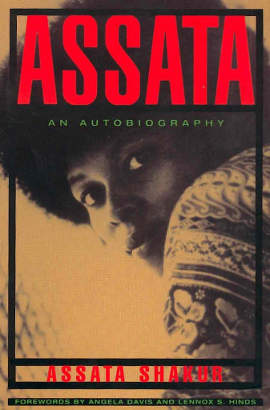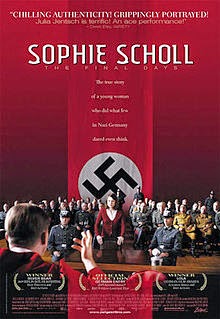Review by Norris Thomlinson, Deep Green Resistance Hawai’i
Once you understand something about the history of a people, their heroes, their hardships and their sacrifices, it’s easier to struggle with them, to support their struggle. For a lot of people in this country, people who live in other places have no faces.”
–Assata Shakur
A World Apart

I grew up in the same country as Assata Shakur, but as a poor black woman, her autobiography reveals an experience a world apart from my own middle class, white male upbringing. She ably captures these differences in a series of anecdotes revealing that she did in fact grow up in a different country: “amerika”, while I enjoyed the facades of democracy, peace, and justice in America. I’ve been aware of the shocking statistics of incarceration rates of people of color, disproportionate distribution of wealth, heartbreaking inequity in education systems, increased exposure to toxins, decreased lifespans, and on and on. But I haven’t read much by black authors about their personal experiences navigating these systems of oppression and injustice. Shakur’s autobiography is surprisingly easy to read and even enjoyable, despite and because of its humorous tragedy, and makes an excellent introduction to a different reality for those of us born into white and/or male privilege.
Beyond her personal insights into the impacts of class, race, and gender, Shakur shares her astute political analysis, and draws a logical line from her childhood acceptance of the systems of America to her adult revolutionary struggle against amerika. Based on voracious reading, observation of the world around her, and careful thinking, she developed a radical analysis of structures of power and how to fight them. She understands that “What we are taught in the public school system is usually inaccurate, disorted, and packed full of outright lies” and that “Belief in these myths can cause us to make serious mistakes in analyzing our current situation and in planning future action.” She links the “interventions” and invasions of the US abroad to its theft of indigenous land and oppression of people of color at home.
Shakur knows none of this is an accident, fixable by asking those in power to change their ways. The people need to fight back, using violence if necessary:
“…the police in the Black communities were nothing but a foreign, occupying army, beating, torturing, and murdering people at whim and without restraint. I despise violence, but i despise it even more when it’s one-sided and used to oppress and repress poor people.”
Horizontal Hostility
Shakur explains that while those in power use schooling, media, the police, and COINTELPRO to divide and conquer those who might oppose them, the solution is simple (though not necessarily easy):
“The first thing the enemy tries to do is isolate revolutionaries from the masses of people, making us horrible and hideous monsters so that our people will hate us.”
“It’s got to be one of the most basic principles of living: always decide who your enemies are for yourself, and never let your enemies choose your enemies for you.”
“Some of the laws of revolution are so simple they seem impossible. People think that in order for something to work, it has to be complicated, but a lot of times the opposite is true. We usually reach success by putting the simple truths that we know into practice. The basis of any struggle is people coming together to fight against a common enemy.”
“Arrogance was one of the key factors that kept the white left so factionalized. I felt that instead of fighting together against a common enemy, they wasted time quarreling with each other about who had the right line.”
Parallels with Deep Green Resistance
It seems many of Shakur’s insights directly informed the Deep Green Resistance book, or the authors came to the same conclusions after studying similar history. For example, Shakur clearly states the need for a firewall between an aboveground and a belowground:
“An aboveground political organization can’t wage guerrilla war anymore than an underground army can do aboveground political work. Although the two must work together, they must have completely separate structures, and any links between the two must remain secret.”
She sees one of the main flaws of the Black Panther Party as having mixed aboveground political work with a militancy more appropriate for a belowground, especially in attempting to defend their offices at all costs against police raids. While understandable as symbolic of their pride and a willingness to fight for what was theirs, the simple reality was that the Panthers weren’t ready to go up against the military might of the state, and it was suicide to attempt to hold this symbolic territory. In asymmetric warfare, you must give way where the enemy is strong, and strike where the enemy is weak.
Perhaps most importantly, Shakur emphasizes several times the necessity of discipline and of careful, logical, long-term planning. She recounts an embarassing situation where she and some friends smoke marijuana in a public park while carrying radical literature, risking beatings or arrest by relinquishing full control of their faculties. After another revolutionary group helps them out of their precarious situation, a dazed Shakur resolves to take the struggle more seriously. This contrasts sharply with the drug- and sex-fueled Weathermen and their contemporaneous white radicals, whose self-indulgence in machismo and rebelliousness resulted in a strategy of instigating fistfights and rioting in the streets.
It reassures me that so many of Shakur’s hard-won lessons are foundational to Deep Green Resistance, as it reinforces my confidence in DGR as a well-researched analysis of historical movements and a solid guide to proceeding from here:
“There were sisters and brothers who had been so victimized by amerika that they were willing to fight to the death against their oppressors. They were intelligient, courageous and dedicated, willing to make any sacrifice. But we were to find out quickly that courage and dedication were not enough. To win any struggle for liberation, you have to have the way as well as the will, an overall ideology and strategy that stem from a scientific analysis of history and present conditions.
[…]
Every group fighting for freedom is bound to make mistakes, but unless you study the common, fundamental laws of armed revolutionary struggle you are bound to make unnecessary mistakes. Revolutionary war is protracted warfare. It is impossible for us to win quickly. […] One of the hardest lessons we had to learn is that revolutionary struggle is scientific rather than emotional. I’m not saying that we shouldn’t feel anything, but decisions can’t be based on love or on anger. They have to be based on the objective conditions and on what is the rational, unemotional thing to do.”
Read This Book
If you want to better understand racism, read this book. If you enjoy a well-told story of a unique and fascinating life, read this book. If you’re interested in historical revolutionary movements, read this book. If you’re interested in a modern revolutionary movement, read this book, read Deep Green Resistance, and let’s start putting the theory into practice.
“It crosses my mind: i want to win. i don’t want to rebel, i want to win.”
–Assata Shakur
